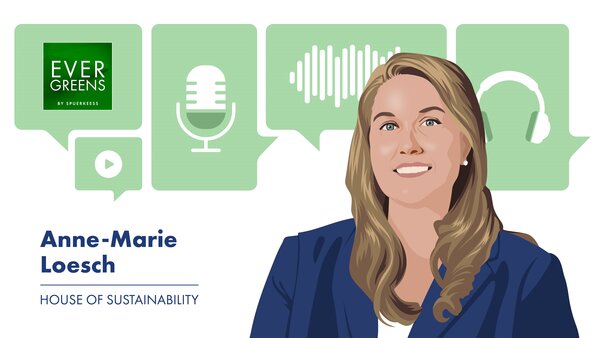The year started on an euphoric note with "US Exceptionalism". Then China caused a stir at the end of January with the launch of DeepSeek. What impact did this have?
DeepSeek, an open-source AI launched by China, has called into question the massive investments of US giants such as Meta, Alphabet and Apple. If China can do the same for less, it raises doubts about the relevance of these investments, particularly in Nvidia chips. This caused a correction in the markets.
Do these doubts persist?
Yes. Nothing has been confirmed yet. Can we produce at a lower cost? Is their AI really at the same level? These uncertainties have disrupted the market. Massive investments in tech are being called into question.
Let’s talk about Liberation Day and its consequences.
The tariffs imposed by Donald Trump on Liberation Day came as a surprise. This had an impact on yields: investors sold bonds and yields rose. This puts the US government under pressure, because it is already paying a lot for its debt. The rise in yields probably prompted Trump to ease the pressure.
Trump openly criticises Jerome Powell. What is at stake?
Trump wants to influence monetary policy, but the Fed remains independent. He does have some hope as Powell’s tenure ends soon. His successor could adopt a more accommodative policy, which would have a major impact on the US budget.
And in Europe?
The ECB has cut rates, but I would not bet on this marking the end of the cycle. The strong euro has a disinflationary impact, oil is cheaper, digitalisation is progressing... I think we could still see two or three more rate cuts if inflation remains low. European economies, particularly in France and Germany, are slowing.
Bond yields are falling. Is this the return of TINA ("There is no Alternative")?
Not yet, but we are getting closer to it. If yields fall further, bonds will no longer be enough to generate a positive real return. We will need to turn more towards equities, especially with higher inflation than between 2010 and 2020.
The European market is outperforming this year. Why?
Industry is in high demand, driven by stimulus plans. The geopolitical context is good for defence companies. Financials, which are well capitalised and generous with their dividends, are attracting investors seeking returns.
What about European banks?
They performed well but remain very cyclical. If the economy turns, their core business will suffer. Comparing their performance to that of the "Magnificent Seven" doesn’t make much sense. That said, those with exposure did well.
What about "green" assets?
The market has gone from one extreme to the other. Sustainable investing was overvalued and then it corrected. Climate change is real, but we need to return to a more rational approach. The theme remains crucial in the long term.
And to conclude, what is your forecast for the second half?
Hard to say. The markets are at record highs. The economic environment remains solid and liquidity is abundant. But I’d rather be prudent. It will all depend on corporate earnings and monetary policy.
![[Translate to English:] [Translate to English:]](/fileadmin/_processed_/b/1/csm_445_EXP_Nick_Huberty_Julien_Ensch_Julien_Kohn_Spuerkeess_3_878ab3a26e.jpg)


![[Translate to English:] [Translate to English:]](/fileadmin/_processed_/4/4/csm_alexandra-kugener_7694260efa.jpg)
![[Translate to English:] [Translate to English:]](/fileadmin/_processed_/f/2/csm_michel-marx_54d2966b86.jpg)
![[Translate to English:] [Translate to English:]](/fileadmin/_processed_/f/7/csm_arnaud-duban_87d7d42d9b.jpg)

![[Translate to English:] [Translate to English:]](/fileadmin/_processed_/4/7/csm_438_EXP_Julien_Kohn_Spuerkeess_9001fc61ae.jpg)
![[Translate to English:] [Translate to English:]](/fileadmin/_processed_/c/3/csm_437_EXP_David_Schmit_Spuerkeess_6beedf10c9.jpg)
![[Translate to English:] [Translate to English:]](/fileadmin/_processed_/6/7/csm_433_EXP_Francesco_Ferrero_LIST_31171ca1b1.jpg)
![[Translate to English:] [Translate to English:]](/fileadmin/_processed_/d/1/csm_434_EXP_Nicolas_Griedlich_Deloitte_f84788af86.jpg)
![[Translate to English:] [Translate to English:]](/fileadmin/_processed_/0/d/csm_435_EXP_Rachid_M_haouach_Spuerkeess_6aout25_4132487c59.jpg)

